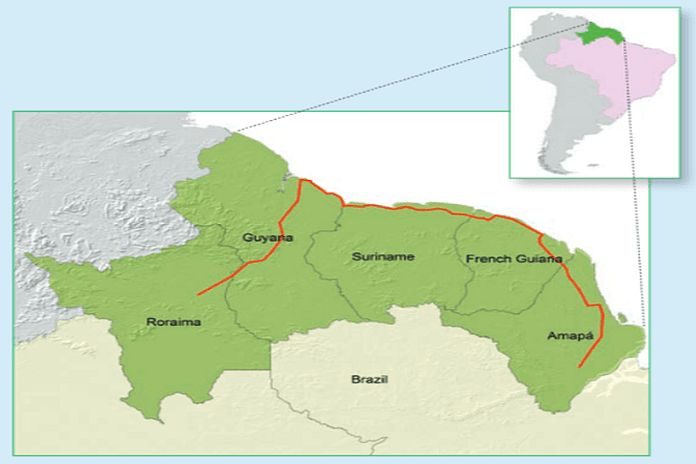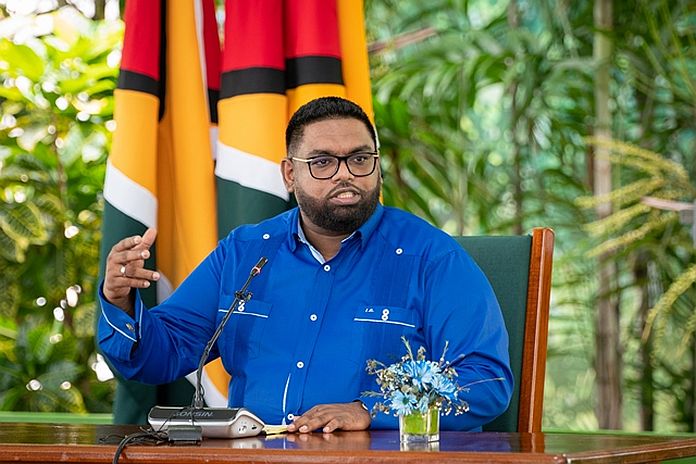By Kemol King
GEORGETOWN, Guyana, (DPI) – The government of Guyana is in talks with some of its neighbours to create a regional energy corridor, linking Guyana’s energy infrastructure to Suriname’s, Northern Brazil’s and French Guiana’s.
“The strategy of Guyana is to become a major player in the energy corridor of Brazil, Guyana and Suriname,” president Mohamed Irfaan Ali, said, during the inaugural virtual diaspora conference last Saturday.
Recent hydrocarbon discoveries in the Guyana-Suriname basin include significant gas reserves with potential, which has renewed interest in the corridor. Guyana intends to pipe gas to shore from the Liza field to substitute its current oil-fired power generation. The Liza field was the first significant oil find offshore Guyana.
The government is also operationalising plans for renewable energy projects to support its intention of creating a cleaner energy mix. The energy corridor would see the countries teaming up to share power based on a collective understanding of their needs and ability to supply.
President Ali said the operationalisation of this plan would require the development of local knowledge and capacity in the area of logistics.
“Our own demand locally and the spinoff of our own investment that will see more export, would require greater logistics planning. The integration of Suriname and Brazil, creation of that new corridor, making Guyana an important shipping hub for the region, requires careful planning and development of a logistics hub and industry. And that by itself brings a stream of benefit. It’s not only what is happening in Guyana,” he said.

The president also addressed the energy corridor during an April 28 press conference, at State House.
“Later this year, we are expecting to have a meeting between Brazil, Guyana and Suriname to look at the energy corridor because as you’re aware, Suriname also has a lot of development that is taking place in the oil and gas sector, and we have to look at what the net output would be, and what it means in supplying Northern Brazil, and in supplying French Guiana. So, our energy mix would be broad and comprehensive beyond our shores.”
Additionally, in his address during the ceremonial opening of the 12th parliament in February, the president said the government had already commenced discussions with its neighbours on this matter.
The project had been in talks for several years, as the Inter-American Development Bank conducted baseline and pre-feasibility studies in 2016 and 2017 on what it calls the ‘Arco Norte Electrical Interconnection.’
The bank stated that the main benefits of such a project would be the lower-cost generation for all countries involved; potentially lowered electricity prices for consumers in Guyana and Suriname; more secure supply; reduced carbon dioxide emissions and export earnings, especially for Guyana.





